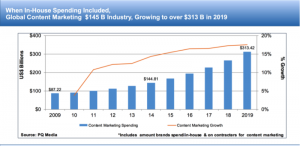SEO reports are often really useful… for SEO professionals. Columnist Greg Gifford asserts that if you want to truly prove the value of your services to your clients, you have to tie your reports directly to their bottom line.

You’d think that after a year or so of these posts, I’d run out of things to be on the soapbox about, right? Unfortunately (or maybe fortunately, since they give me material to write about), there are still tons of mistakes and missteps out there in SEO land — and lots of marketers who need help.
This time around, I’m talking about SEO reports. I’ve taught several intensive Local SEO training courses at conferences all over the world, and monthly reports always come up. Marketers never seem to be really satisfied with what they’re providing to clients, and clients never seem to be really satisfied with the report they’re given every month.
The big problem is that most of us live in our little Local SEO bubbles and don’t fully consider how a layperson thinks about SEO. We live, eat, breathe and bleed SEO — some of you out there even name your pets after algorithm updates. No one ever stops to think about how to effectively communicate with someone who has absolutely no idea how SEO works.
Most of our customers have put zero thought into how Google works, much less how to optimize to show up better in search results. They simply know that if they have more visibility in searches, they get more business. The rest is a big, scary black box.
When we give them reports filled with all the zippy SEO and digital marketing jargon, they get glassy-eyed. When they see chart after chart of data that means nothing to them, they completely zone out. As long as sales aren’t tanking, then they can assume that your service is beneficial — but they’re not sure, and they’re definitely not advocates.
If you want to keep a client for the long term, you’ve got to create reports that show real value to the client, not to your marketing mind. You could deliver a stellar report that shows ridiculous growth in ranking and organic traffic — a report that you’d use as an example in future sales presentations — but if that client doesn’t understand the lingo or the data, the report is useless.
It’s even worse when you onboard a new client who’s been brainwashed by reports filled with useless or misleading data in the past. They’ll expect the same junk report, and you’ll spend significant time over the first few months easing them into your new reporting system.
Instead, if we all stop the madness, life would be much easier for all of us. Our clients would be happy, and we’d have an easier time keeping clients around for a longer period of time. So let’s look at a few of the important points about reports:
Stop talking about links
Clients want to know how their money is spent — they want to know what you actually do for what they’re spending. I can’t tell you how many monthly SEO reports simply list out the monotonous tasks that were performed the month before. How does this help a client prove ROI?
In the same vein, listing links is pointless. Sure, it shows you got some links for the client, but again, that doesn’t really prove value in what you’re doing. The vast majority of clients don’t really understand how links work or why they’re important — so you don’t really need to include them in your report.
Stop with the overload of data
We all get it, you’re a whiz at Google Analytics, and you can throw a ton of charts at your clients. But what does it all mean? You might even have a contact at the client’s business who really loves the data, but when the owner checks in, it’s glazed eyes and questions about why they’re spending thousands on something that they don’t understand.
If you have a client who wants all the data, give it to them. If another client doesn’t care, then change your report! You don’t have to give the same report template to every customer.
Stop with the dashboards already!
For some reason, lots of marketers have jumped on the dashboard train. Don’t get me wrong, I think dashboards are awesome tools — for internal teams. When you make a dashboard available to a client, they’ve got 24/7 access to look at what’s going on. We’ve all had to defend a sudden traffic drop or ranking drop — when a client has a dashboard, those questions come at you constantly. Plus, most dashboards are overloaded with data, so it’s even more confusing for a client who doesn’t get all the minute details.
Stop with the ranking reports, too!
Rank trackers are great tools — again, only for internal teams. You absolutely need to keep an eye on search visibility and any changes that happen.
But here’s the kicker: Including rankings in your report doesn’t mean squat. Rankings don’t tie into the client’s bottom line. I could get a new client ranked #1 for hundreds of keywords in less than a week — of course, they’d all be highly obscure long-tail phrases that no human would actually search, but boy, would that look exciting on an SEO report!
It’s all about the bottom line
If we boil it down to the simplest concept, our job as Local SEOs isn’t to get our clients to rank better in local searches, it’s to make our clients more money. Period. If you want to truly prove the value of your services to your clients, you have to tie your reports directly to their bottom line.
Ideally, your SEO efforts will result in better visibility in local searches, which in turn leads to more traffic, which in turn results in more leads, which hopefully amounts to more sales.
Realistically, your SEO report only needs to be a single page. You need to show how organic traffic improves over time, and you need to show how leads (and especially leads from organic traffic) improve over time. In most cases, that’s it.
However, if a client needs something else specific to really see bottom-line benefits, don’t be afraid to set up a custom report! You might have a client that only really cares about the number of inbound calls received in a month, while another might only care about the number of repeat customers. One size doesn’t fit all, and your ability to create a custom report that truly shows the value of your services will go a long way toward locking in a long-term relationship with that client.
As marketers, we’ll be much more successful if we don’t think like marketers when we’re dealing with our clients.
[Article on Search Engine Land.]
Opinions expressed in this article are those of the guest author and not necessarily Marketing Land. Staff authors are listed here.
Marketing Land – Internet Marketing News, Strategies & Tips
(56)
Report Post







